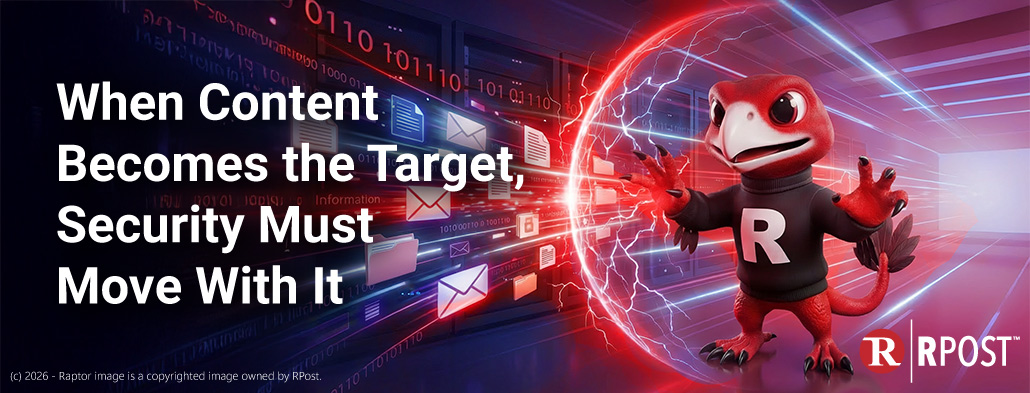Our newly released update for the RMail Outlook plugin includes major updates to the LargeMail® service. After installing the new version, RMail users will be able to attach and send files up to 200MB directly from the “Send Registered” dialog box. There is also a new option to send files via LargeMail automatically when your […]
As many know, email is not naturally well suited for sending file attachments of more than ten megabytes. One can never be sure if the recipient’s system will accept very large attachment transmissions.
As we discussed in a recent article, “Deciphering Large File Sharing, Sending, Storage (Part 1)”, email is not naturally well suited for sending file attachments of more than ten megabytes. One can never be sure if the recipient’s system will accept very large attachment transmissions.
It seems innocent enough. Your attorney shares a few files by sending a link from their unprotected cloud storage account. They expect that you’ll only see the files that they intended to send. But there are huge risks to this approach. This behavior can result in the waiver of attorney client privilege.
Service professionals and business managers are continually trying to improve workplace productivity, not just to increase profits but also to reduce tedium in their daily work flows. Web applications for customer relationship management (Salesforce.com), professional networking (LinkedIn), messaging, eSigning, and file sharing (RPost), for example, can be extremely helpful tools for streamlining work flows.
Why are you emailing your clients weblinks to documents? They’re not supposed to click on unknown links. It’s making them nervous. Even if you’re using popular apps like dropbox to share files, you can’t be sure your client will trust the link. Nor should they. They might think it’s a phishing scheme.
Vacationing in The Bahamas? Leave Your Laptop at Home The constitution provides certain privacy rights. Attorneys and their clients generally enjoy extra protections on privacy with “privileged” correspondence. But what happens if the information is inadvertently exposed? There are all sorts of pitfalls that can expose your sensitive information. Here are some shocking ones.
Equifax’s $10 Billion Bet. You Really Don’t Care (Enough to Do Something) With so many big-name data breaches in recent times, your eyes may have glossed over the recent Equifax consumer data breach settlement. The numbers were big, 147 million consumers had their sensitive information exposed. The penalty, $700 million (or about $5 per person). […]
End of Summer Phishing, Hooks Office 365 Users The phishermen are getting smarter, using better lures to catch ever smarter phish (in this case, you, as an Office 365, OneDrive, SharePoint, or Dropbox user).
.jpg)
February 13, 2026

February 06, 2026

January 30, 2026

January 23, 2026

January 16, 2026